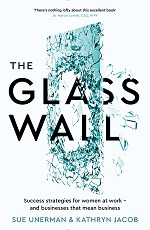There are 48 techniques that can transform the creativity of the work that you do. Here’s one of them. The power of diverse voices.
Its not a secret that I believe that diversity drives business growth. It is also crucial to creativity, and truly creative people, whoever they are, synthesize different voices to create powerful new work and ideas.
In 1963 Mike Nichols (who subsequently went on to direct and win an Oscar for The Graduate, a movie that is more interesting by the way from the point of view of Mrs Robinson than the other characters) was just about embark on directing for the first time (he had been a comedy performer until then).
His first play, which he delivered in just 5 days, was Barefoot in the Park (later also a hit movie). Written by Neil Simon and starring Robert Redford in one of his breakthrough roles. Speaking on the Sky documentary “Becoming Mike Nichols” Nichols talked about the process of creating the play, which included a lot of rewrites and improv – his preferred way of working.
New job, lots to prove, 5 day turnaround, script unfinished. Quite a challenge.
He said that the play was funny, but didn’t have an ending, and though he and Simon wracked their brains they couldn’t find a good third act. The breakthrough came from an older friend of Nichols who watched a rehearsal. The writer Lillian Hellman commented on one scene saying that she had a much better idea for it. She thought that the mother-in-law of the lead character played by Redford might sneak off with the rakish elderly gentleman who lived upstairs for a fling. This in fact wasn’t the plot, but as Nichols considered it this actually was the twist that the play needed – the action that allowed the resolution of the stormy new marriage of the main plot.
Nichols as a younger man, more of an age of the young married couple who star in the show, couldn’t imagine the mother-in-law (in her 50s) having illicit sex with the man upstairs. As he reminisced about it he sounded somewhat shocked even in retrospect. What was clear was that without Hellman, a women in her late 50s, the 30 something men who were writing and directing would neither have considered, nor felt permission, to add this charming twist to the plot.
Nichols and Simon, two men in their thirties, stumped creatively and saved by listening to the voice of a woman who because of her age, is fairly invisible in traditional creative departments.
As MediaCom’s global ceo of creative systems Stef Calcraft writes: “Here’s to the creative ones, and that can be all of us”. If it isn’t all of us, really all of us, in our full differences in every respect (including age), there just won’t be as much creativity.
That was the first of the 48 ways to transform creativity. The others I will come back to in future blogs.



Do you always know exactly what you are doing?
Tuesday, July 27th, 2021Know what you are doing, do what you don’t know.
You have all read lots about the Euro 20 final. Let’s look at another game that has lessons for us at work.
Spain versus Italy in Euro 20 was a football lesson about the importance of a balance between clarity and chaos.
Both teams played very characteristic football. Both teams scored once during the 90 minutes and Italy won on penalties (sounds familiar).
The Spanish football was beautiful to watch – a case study in their trademark tiki-taka play.
We wrote about the spirit of their game in our case study about Xavi in our book Belonging. Describing his role in the game in one of the humblest utterances
from a world-class footballer, Xavi said it was simply: “Receive,
pass, offer”:
back to you.
We used this as a great role model for leadership in the office to create a culture of Belonging where everyone can thrive. Let’s put aside the brilliance of being able to describe everything that you do in three simple words. Focus instead on what that means for every other member of his team. Xavi’s role here was not focused on scoring goals or on tackling the competition, nor specifically on defence. It’s certainly not about him looking good. It was entirely to be at the service of his team members. “Truly if you played for Barcelona
at its peak, there was always someone to pass the ball back to, so you didn’t run the risk of being the idiot that let go of possession to the striker from the other team who might score the winning goal.” And for most of the Italy Spain game on July 6th 2021, this kind of football was on show whenever Spain had the ball. Now, you may or may not have a Xavi in your team at work. But in the likely case that you do not, what if instead you create a culture of Belonging, where the whole success of the business is more important than individual stardom or each person crushing their own KPIs? If you can galvanize the culture in this way, the chances of success
over the competition are much greater.
But as we saw, this strategy alone is not always enough. Fans of Barcelona, with long memories, may recall the game in when 2012 Chelsea played Barcelona in the semi-final of the Champions League. It’s probably fair to say that most people who watched the game on the TV in the UK, excluding Chelsea fans, were rooting for Barcelona, home of some of the most beautiful football in the world at that point.
I watched my partner watch the game. At the end of it he was yelling “Just stick it in the mixer!”
I had to ask him what that meant. He said that Barcelona were renowned for their passing game and maintaining possession of the ball. They knew what worked, and what didn’t work, and played to a system that made them extraordinarily successful, and conquered all before them. A system that they refined all the time, but that they didn’t like to deviate from. Unfortunately for Barcelona fans (or anyway non-supporters of Chelsea) the only people who understood Barcelona’s system better than Barcelona were Chelsea.
Their fans were desperate for Barcelona to deviate from their system of keeping the ball in possession and take some chances. To stick it in the mixer (goal area) and not worry about the chance of giving the ball away.
How many glaring opportunities are passing by because the rigour of the media playbook means that they can’t be proved to work in advance of trying?
There needs to be a balance between following the rules and justifying actions on the basis of known data, and taking a leap into the unknown. Sometimes, most of the time, sticking to the tried system is good and proper. Yet this is based on what we know we know, and as economist John Kay and former Bank of England chief Mervyn King write in “Radical Uncertainty”: “Good strategies for a radically uncertain world avoid the pretence of (certain) knowledge.. they acknowledge that we do not know what the future will hold.” Or as we might conclude from the beautiful game: Sometimes you need to stick it in the mixer for any chance of a win. Know what you are doing, but also be clear about what you don’t know and when to try something where you cannot predict the outcome.
Posted in MediaComment | No Comments »